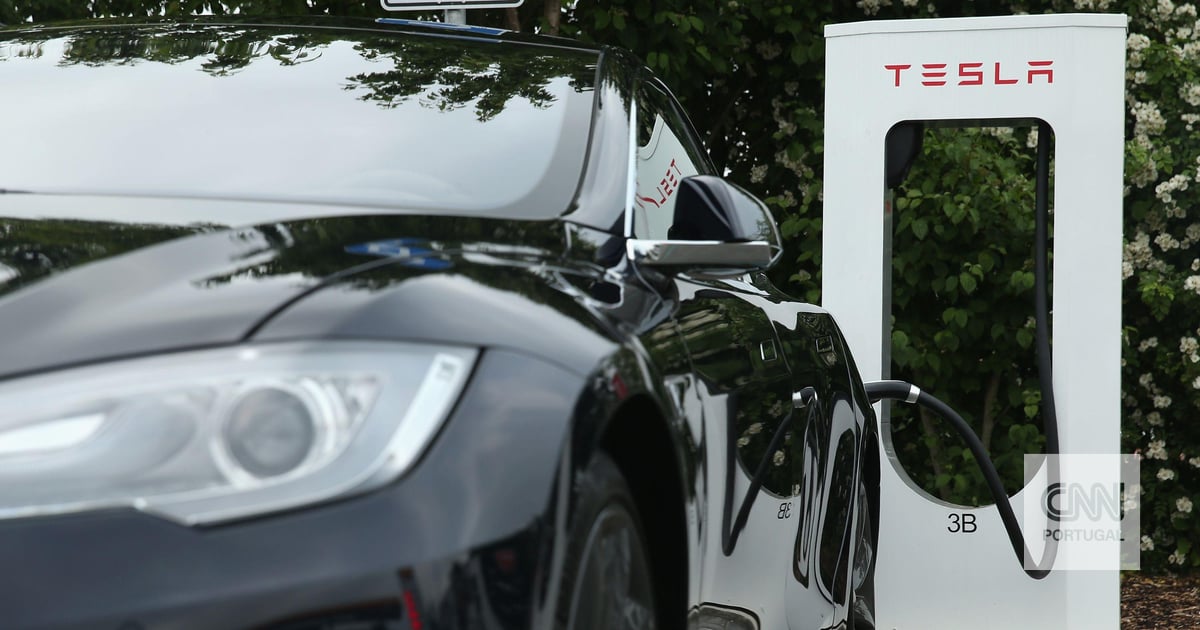Electric cars have some characteristics that drivers are not initially accustomed to. This is the case with acceleration. But not only
Hertz recently announced that it will sell 20,000 electric cars from its fleet and replace them with gasoline-powered vehicles. One of the reasons cited by the company is that drivers continue to be involved in accidents with their cars.
Electric vehicle repair costs are also much higher, Hertz CEO Stephen Shear said. Hertz's decline in electric vehicle sales points to a broader problem facing the electric vehicle industry. While analyzing insurance data, researchers at LexisNexis Risk Solutions clearly discovered that rental car drivers aren't the only ones having problems keeping their electric vehicles safe.
Scheer's comments echoed findings by insurance analysts at LexisNexis, who found that when vehicle owners switch from gasoline to electric cars, they tend to have more accidents. Drivers also tend to crash slightly more when they switch to gasoline-powered cars, but the increase is more pronounced with electric cars. The frequency of claims increases by about 14.3%, while the severity of claims or the amount owed increases by 14.5%, according to the same data.
According to LexisNexis, the increase in accidents is highest during the first year or so after drivers buy a new electric vehicle, but declines after that, likely as people get used to driving the new model. They concluded that the problem is much smaller when the driver switches from one gasoline-powered vehicle to another gasoline-powered vehicle.
It's mostly a Tesla topic
In both cases — with Hertz and with LexisNexis — “electric vehicles” mostly means Tesla cars. Teslas represent 80% of Hertz's electric vehicle fleet. Among privately owned electric vehicles, Tesla vehicles also make up the majority, making up the majority of new electric vehicles sold in the United States.
This suggests that there may be something about Tesla cars that causes more accidents than other cars. But LexisNexis researchers have already noticed similar trends in China, where there are many electric cars, including non-Teslas.
In its research, LexisNexis analyzed insurance claims for new electric cars that have replaced the gasoline car in the household. As much as possible, analysts tried to balance other variables, such as driver age, household income, and insurance level.
Accidents are more frequent in households with a gasoline model and an electric model, suggesting that regularly switching from one to the other exacerbates problems. The fact that the frequency of accidents has declined over time also suggests that ignorance has something to do with it, said Xiaohui Lu, head of electric vehicle research at LexisNexis Risk Solutions.
The Highway Loss Data Institute, a U.S.-based organization funded by the insurance industry, did not find higher crash rates for Tesla vehicles or other electric vehicles overall, based on insurance claims. However, according to HLDI, Tesla vehicles tend to have higher claims costs.
EV driving characteristics
In many ways, there are few differences between driving an internal combustion car and an electric model like a Tesla. There is a brake pedal, accelerator pedal and steering wheel. But there are some fundamental differences between driving a Tesla, as well as some other electric models, and driving gasoline cars.
For example, Tesla cars do not have a “start” button to turn the car on and off. Instead, when the driver sits in the car, it is immediately started and ready to drive. When the driver leaves, the car turns off on its own. Since this is an electric vehicle, which means there is no sound or vibration from the engine, it can sometimes be difficult to tell the difference between on and off.
More important for insurance purposes, Lu said, is the fact that electric cars like Tesla's tend to be fast. Thanks to their powerful electric motors, they can accelerate much faster than conventional gasoline vehicles.
For example, a long-term Tesla Model 3, even if it's not a particularly performance-oriented version, can go from zero to 60 mph in about 4.1 seconds, according to Car and Driver. In comparison, the BMW 330i takes more than a second to reach this speed. The Tesla Model 3 Performance can do it in 3.1 seconds, according to Car and Driver tests. This kind of speed, before Tesla, was associated with high-performance sports cars.
In the insurance industry, there is a long-standing relationship between strength, frequency and volume of claims. Fast cars collide more often and with greater force, leading to more serious accidents. Additionally, electric cars lack the usual engine sounds that accompany rapid acceleration and high speeds, so drivers may be less aware of how fast they are going.
In addition to increased speed, electric vehicles are also heavier than gasoline-powered vehicles due to their large, dense batteries. This also causes more damage to vehicles the electric vehicle collides with, leading to higher insurance claims.
High speeds aren't necessarily the problem, Lu said. Speed control is especially critical in low-speed environments, such as parking lots, with other cars and concrete pillars around. In gasoline cars, starting from a stop requires the engine to accelerate slightly before the car starts moving. The same does not happen with electric cars, which respond differently to pedal pressure.
“Most drivers are trained to drive vehicles [de combustão interna] “It applies the usual amount of pressure to the drive pedal, but the behavior is completely different, especially in low-speed areas,” Lu said.
Electric cars can also have what's called “one-pedal driving,” which causes the car to quickly slow down when the driver removes the accelerator, rather than simply letting it slow down. Getting into the habit of using only one pedal to start and stop can cause confusion in emergency situations, when it is necessary to quickly press the brake pedal.
Most drivers would probably feel comfortable driving their new electric cars with much less than three years' experience, Lu said.
But research data suggests that this confidence may be wrong.

“Wannabe internet buff. Future teen idol. Hardcore zombie guru. Gamer. Avid creator. Entrepreneur. Bacon ninja.”

